Akyumen Holophone Phablet
As the upcoming Apple iPhone 7 and
Samsung Galaxy Note 7 start generating initial hype inertia, an unknown
smartphone manufacturer is trying to steal some spotlight. Meet the strangely
titled Akyumen Holophone Phablet, one of the most interesting devices in recent
history.
Available September 1st, the Akyumen
Holophone Phablet comes with a gargantuan 7-inch display. Despite its
tablet-like size format, the manufacturer still considers the Akyumen Phablet a
phone due to its phone-ready radios that allow for both calls and data usage.
If a 7-inch display isn't big enough for
your needs, the Holophone also includes an integrated pico projector. The
manufacturer says that the projector has a 45-lumen brightness rating and can
project a display of up to 100 inches across the diagonal at a resolution of
720 by 1280 pixels.
In the software department, the Akyumen
Holophone introduces an interesting proposition. Users will have their choice
between Android Marshmallow and the full version of Windows 10 PC. Note that
this is not the Windows 10 Mobile version nor the Continuum version of the
former. Under the hood of the tablet beats the heart of an Intel Cherrytrail
8300 Quad Core chipset with 4 GB of RAM. This should offer sufficient processing
power for most basic tasks.
The Akyumen Holophone comes with 128 GB
of integrated storage. However, if that's not enough for all of your multimedia
content, you can add a microSD card. The
Akyumen Holophone is now available for pre-order from the manufacturer's
website. The basic bundle will set you back US$ 750 while the US$ 950 bundle includes
multiple accessories such as a Bluetooth speaker, a battery stand, as well as a
game controller. Unfortunately, all of the pre-order spots for the September
1st release date have been filled, meaning that you'll probably have to wait a
bit longer to get the Holophone in your hands.
Many other devices promised to introduce
us to the world of Windows-Android dual boot. If done properly, the ability to
switch between Android and Windows 10 depending on momentary needs would be
greatly appreciated. Android is ideal for lighter tasks, but the full
complexity of Windows 10 is there to support you for advanced tasks as well as
to provide support for legacy software.
Unfortunately, it looks like both Google
and Microsoft have actively taken steps to prevent the launch of such devices,
which is why we haven't seen dual-boot tablets from any of the big
manufacturers.






